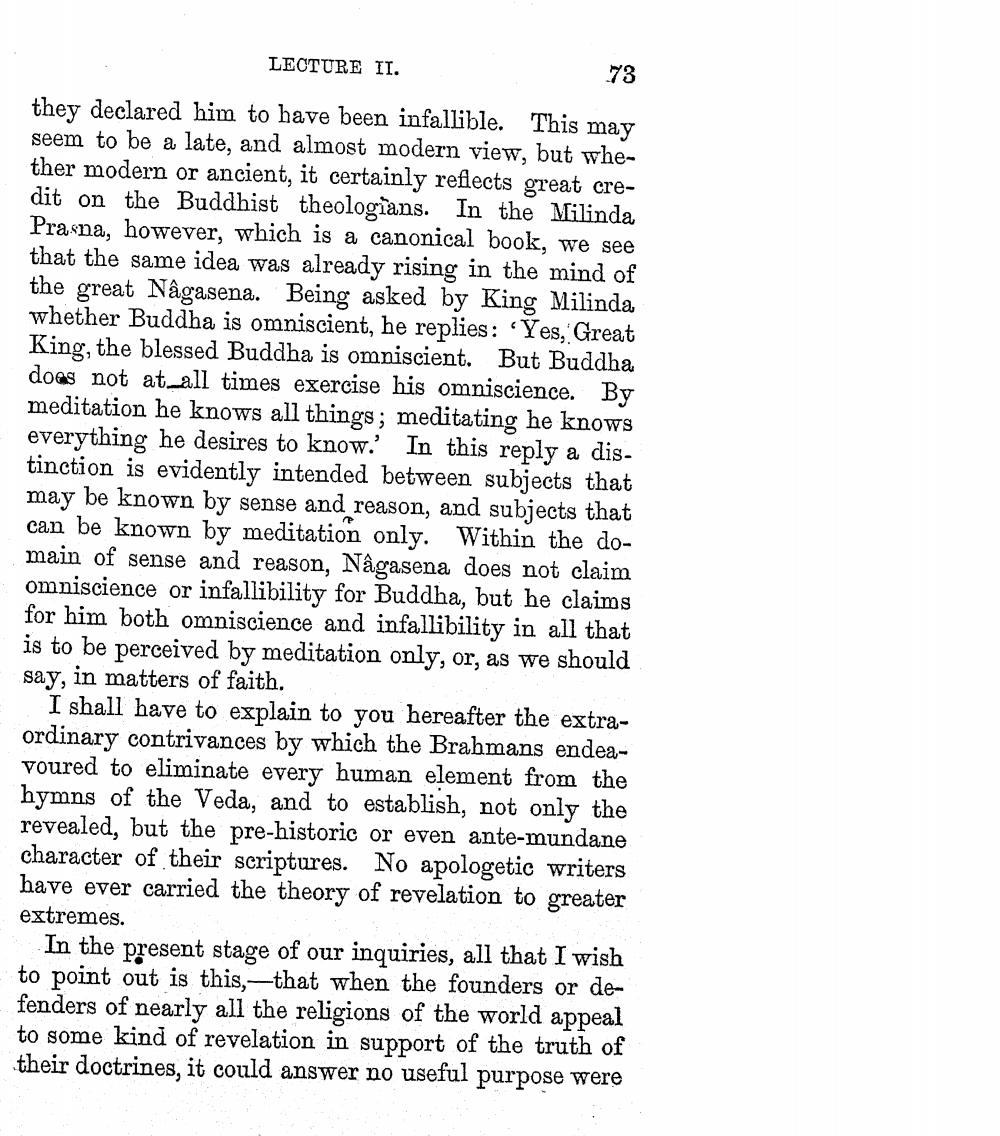________________
LECTURE II.
73
they declared him to have been infallible. This may seem to be a late, and almost modern view, but whether modern or ancient, it certainly reflects great credit on the Buddhist theologians. In the Milinda Praxna, however, which is a canonical book, we see that the same idea was already rising in the mind of the great Nâgasena. Being asked by King Milinda whether Buddha is omniscient, he replies: 'Yes, Great King, the blessed Buddha is omniscient. But Buddha does not at all times exercise his omniscience. By meditation he knows all things; meditating he knows everything he desires to know. In this reply a distinction is evidently intended between subjects that may be known by sense and reason, and subjects that can be known by meditation only. Within the domain of sense and reason, Nâgasena does not claim omniscience or infallibility for Buddha, but he claims for him both omniscience and infallibility in all that is to be perceived by meditation only, or, as we should say, in matters of faith.
I shall have to explain to you hereafter the extraordinary contrivances by which the Brabmans endeavoured to eliminate every human element from the hymns of the Veda, and to establish, not only the revealed, but the pre-historic or even ante-mundane character of their scriptures. No apologetic writers have ever carried the theory of revelation to greater extremes.
In the present stage of our inquiries, all that I wish to point out is this,—that when the founders or de fenders of nearly all the religions of the world appeal to some kind of revelation in support of the truth of their doctrines, it could answer no useful purpose were




